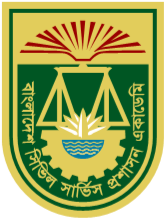Effective Training Methodology for BCS (Administration) A COMPARISON OF SOUTH & EAST ASIAN COUNTRIES
DOI:
https://doi.org/10.56379/bjam.v33i2.2Keywords:
Training Methodology, Time Spaced Leaning, Andragogy, Adult Learning, LBSNAA, COTI, Flipped Classroom, Case Study, Role PlayAbstract
Training Methodology is very crucial in view of preparing civil servants to formulate and implement appropriate
policies of government and also render service to people efficiently and effectively. In spite of having an updated
training contents, BCS Administration Academy (BCSAA) cannot ensure an effective training for the officers of BCS
(Administration) cadre. It is mostly because of inability of existing training methodologies to engage trainee officials in training. Though present training methods mostly include one-way lecture, exercise, discussion and workshops etc. in black and white, in practice, lecture incorporates a huge portion of teaching trainees. This ineffective method of lecture is against the principle of adult learning and time spaced learning. Consequently, trainees, at the end of training, learn nothing new from five-month long Law and Administration Course (LAC). On the other hand, most of the countries of South-East Asia who have world-class civil servants have brought about a massive change in their training methods. They are no longer dependent on lecture based methods of training rather they have adopted modern training methods. These methods provide them with comparative advantage. In this research, responses from trainees and trainers have been taken through survey questionnaire and semi-structured interviews regarding the effectiveness of existing training methods. Most of them irrespective of trainees and trainers were in the same opinion that training methods in use are obsolete, inadequately planned and ineffective. These methods barely help them learning the skills and knowledge needed for the workplace. So, it is a demand of time to restructure the training methods used by BCSAA in LAC and add in most modern methods of training civil servants.

